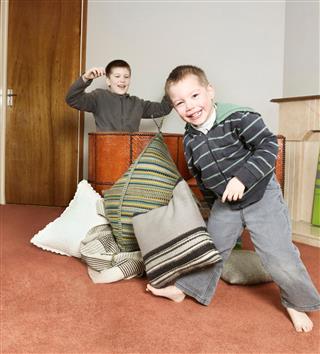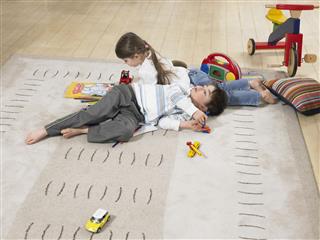
Most of our fondest childhood memories have been associated with games and playtimes. It isn’t a wonder, therefore, to have a method of therapy that utilizes the fun aspects of play to ease a troubled, young mind.
Since the ancient times, humans have always associated play with a sense of carefree abandon. Its fun element apart, indulging in games has had a stress relieving effect on children and adults alike. Along with killing boredom, it helps put back a lot of cheer into a dull day. The more muted benefits of playing include enhanced levels of creativity, self-expression and an improved self-image. It helps us improve our bonding with our companions, and instills a sporting spirit.
All said and done, apart from all the ‘psycho talk’ regarding the advantages of gaming, we have to admit that playing is just plain and simple fun. It’s something we always look forward to doing, irrespective of our age. It is this very reason why revamping play and making it a part of therapeutic treatments is such a laudable innovation.
It is an obvious fact that young children are not as capable as adults in expressing their emotions. Play therapy correctly brings these hidden feelings out by letting a troubled child indulge in the activity that he/she feels most comfortable with – playing. It is not unknown that playing games lets the child exhibit his/her natural behavior, as they are bound to be least inhibited while doing so.
Benefits of Play Therapy for Children
What is Play Therapy?
This concept may be compared in a few ways with adult therapy, wherein a grownup person who has more experience with expressing emotions, will choose to do so through the medium of verbal communication. With children, it gets complicated, as a child is certainly not as evolved when it comes to verbally communicating inner emotions.
Playing games, for children, becomes a vehicle to showcase their expressions, and rightfully, an appropriate one. With older children, it can also be looked at as a chance for them to display their feelings in the most carefree way possible, without really being bothered by the fact that they might be undergoing some sort of ‘treatment’. This happens to be a drawback of other therapeutic treatments, where the child may be aware of being under some kind of observation, which could lead them to feel a little inhibited, and could create additional complications.
What Does it Aim to Achieve?
» The goal of play therapy is to help the child eliminate any emotional discomfort that may be a result of trauma, and not let it affect their normal behavior.
» It helps build communication channels between the child and the family, as it makes parents more perceptive towards understanding the needs of the child.
» Besides this, it helps children to improve their communication skills, and enables them to be confident enough to deal with their fears.
Who Can Benefit From Play Therapy?
» Children who witness frequent inter-family conflicts or domestic violence, leading to a separation or divorce
»Children who are victims of physical, emotional or sexual abuse
»Children who have lost a parent, sibling or any close relation
» Children suffering from a long-term illness, especially those who are hospitalized for a long time
» Children who are survivors of calamities or accidents
» Children with attention deficit disorder
Importance of Play Therapy
» To begin with, play therapy helps bring out the true feelings and emotions of the child, as indulging in games is seen as completely non-threatening. The child tends to freely exhibit his/her natural characteristics.
» It puts the child in the right frame of mind to help him/her get over the trauma plaguing him/her.
» It makes the child more friendly and outgoing, and helps him/her bond with their playing companions, who usually are family members.
» It enhances their sense of imagination, perception and creativity.
» They get the opportunity to learn from their mistakes while being a part of a very relaxed environment.
» It makes them aware of the ‘other point of view’. As play therapy is, at times, a group activity, it teaches them to expand their minds in order to acknowledge other viewpoints.
» Play therapy works wonders for kids suffering from low self-esteem or those who are extremely shy. Alternatively, it helps tone down aggression levels in children too.
The importance of play therapy has been well-chronicled over the past few years. Although there will always be a few people who will remain skeptical about it, there is no doubt about the fact that it is instrumental in bringing the family closer together. Ultimately, there isn’t any therapeutic method which can guarantee a cure; but, it will seem worthwhile to try something that puts a refreshing and playful spin on traditional methods.











